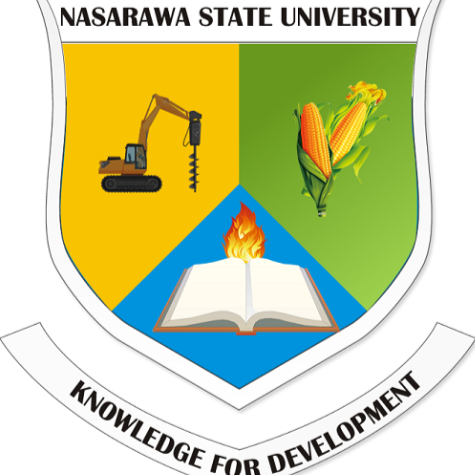
The management of Nasarawa State University, Keffi (NSUK) has announced important updates regarding some academic programmes in the university. In a circular released by the Registrar, Dr. Bala Isyaka Ahmed II, on Wednesday, 20th August 2025, the University officially informed the general public—especially prospective students—that some courses have been restructured (unbundled) while others have been replaced with new programmes.
This information is very important for all candidates who applied for admission into NSUK for the 2025/2026 academic session, particularly those who chose Mass Communication, Estate Management, or Agriculture as their courses of study.
Unbundling of Mass Communication
The popular B.Sc. Mass Communication programme at NSUK has now been unbundled into separate degree programmes. This restructuring is in line with the latest directives by the National Universities Commission (NUC) to modernize and broaden communication-related studies across Nigerian universities.
Candidates who initially applied for B.Sc. Mass Communication are hereby required to change their course of study to one of the following newly introduced programmes:
Broadcasting
Journalism and Media Studies
Public Relations
These three new programmes will allow students to specialize in specific areas of communication and media, giving them better professional opportunities after graduation.
For example:
Students who love television, radio, and digital streaming can now pursue Broadcasting.
Those passionate about news writing, reporting, and editing can go into Journalism and Media Studies.
Students who prefer working with organizations to manage public image and communication can choose Public Relations.
By unbundling the Mass Communication programme, NSUK is ensuring that graduates are more skilled, industry-ready, and prepared for the ever-changing communication and media environment.
Replacement of Estate Management
The University has also announced that it does not offer Estate Management as a course of study. Therefore, all candidates who applied for Estate Management during the 2025/2026 UTME or Direct Entry must change their course to Urban and Regional Planning.
Urban and Regional Planning focuses on the design, development, and management of cities, towns, and communities. Students in this programme will learn how to create sustainable urban environments and contribute to solving problems related to housing, land use, and infrastructure development.
Unbundling of Agriculture
In the same circular, the University also clarified that it does not offer Agriculture as a single programme. Instead, the Faculty of Agriculture has been reorganized into specialized departments. Therefore, candidates who initially applied for Agriculture must change their course of study to any of the following options:
Animal Science
Agronomy
Agricultural Economics and Extension
Fisheries and Aquaculture Management
Forestry, Wildlife and Ecotourism
Home Science and Management
Each of these programmes offers students the chance to gain expertise in different aspects of agricultural sciences. For example:
Animal Science focuses on livestock production and animal health.
Agronomy is about crop science, soil science, and crop production.
Agricultural Economics and Extension combines agriculture with economics and rural development.
Fisheries and Aquaculture Management prepares students to manage fish farming and aquatic resources.
Forestry, Wildlife, and Ecotourism trains students in forest management, wildlife conservation, and sustainable tourism.
Home Science and Management deals with nutrition, family welfare, and home management.
This restructuring ensures that students will graduate with more specialized skills, which will make them more competitive in the job market and better prepared to contribute to food security, environmental sustainability, and economic development.
Why These Changes Are Important
The unbundling and restructuring of courses in NSUK are part of broader educational reforms in Nigeria’s university system. The goal is to:
Provide students with specialized knowledge.
Ensure programmes are aligned with global best practices.
Produce graduates who are job-ready and relevant in today’s industries.
By splitting broad courses like Mass Communication and Agriculture into smaller, specialized programmes, the university gives students the chance to focus deeply on their areas of interest. This increases their chances of excelling in their chosen career paths.
What Candidates Must Do
All affected candidates are strongly advised to make the necessary changes immediately to be eligible for the ongoing Post-UTME screening exercise.
Candidates who applied for Mass Communication should change to Broadcasting, Journalism and Media Studies, or Public Relations.
Candidates who applied for Estate Management should change to Urban and Regional Planning.
Candidates who applied for Agriculture should change to one of the six specialized agricultural programmes listed above.
Failure to make these changes will prevent candidates from participating in the screening exercise, which means they may lose the opportunity to gain admission into the university for the 2025/2026 academic session.
Deadline for Post-UTME Screening
The University has also reminded the general public that the closing date for the Post-UTME screening exercise remains 29th August 2025.
Candidates must take this date seriously, as the screening exercise is mandatory for all applicants. Without participating in the screening, no candidate will be considered for admission, regardless of their UTME or Direct Entry score.
Final Advice
This notice is very important for all prospective students of NSUK. The University has taken bold steps to restructure its academic programmes, and candidates are expected to follow these changes pro